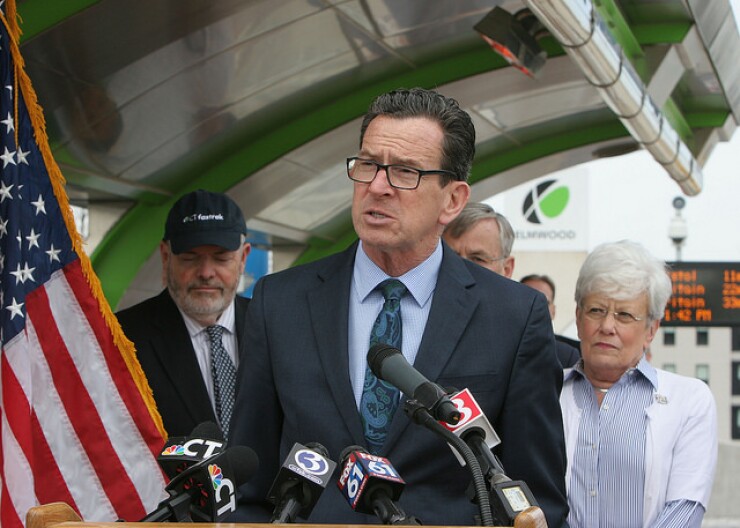Connecticut, with competing party-line legislative budgets, the governor's rebuke of both, and a worsening deficit projection, is careening toward more fiscal turmoil.
On Friday, with strongly divided lawmakers staring at a scheduled May 9 regular adjournment date, Democrats and Republicans passed separate adjustments to the fiscal 2018-19 spending plan.
The same day, state budget secretary Benjamin Barnes projected a current-year deficit of $363.5 million, $170.8 million steeper than reported last month.
“About $150 million of this change is due to our assumption that the federal government’s decision about reimbursement for budgeted increases in hospital rates and supplemental payments will be delayed beyond June 30,” Barnes said in a letter to state Comptroller Kevin Lembo.

Both party-line spending plans hinge on receipts coming in about $1 billion above expectations. If transferred to the budget reserve, or rainy-day fund – what Gov. Dannel Malloy wants – that could raise the rainy-day balance to $1.26 billion.
Malloy, speaking to reporters at the state capitol in Hartford Friday, said he opposed intercepting funds intended to boost the rainy-day balance, which according to Barnes is now $213 million.
“A balanced, responsible budget that avoids raiding the rainy-day fund is the best option,” Malloy said.
S&P Global Ratings on April 13
S&P cited worries about increased debt after the state’s agreement to backstop the bonds of capital city Hartford. The deal made the city’s $540 million of debt a general obligation of the state while putting the city under state oversight.
S&P simultaneously raised Hartford's issuer credit rating to the highest junk rating, BB-plus, from CCC and removed the city from credit watch with positive implications.
“Conspicuously absent from S&P’s analysis is any mention of the enhanced controls enacted by the legislature this past year to limit spending, rein in debt issuance, and systematically shore up the state’s budget reserve fund through spending, bonding and volatility caps,” Nappier’s office said in a statement.
The downgrade is the latest in a two-year stretch for the state, where budget imbalance, high debt and pension liability, and the struggles of its biggest cities belie high per-capita wealth metrics.
Bank of America Merrill Lynch said that while the debt deal was a plus for Hartford, it "would nevertheless pressure the state, which is struggling with its own budget deficits and escalating fixed costs."
Fitch Ratings and Moody’s Investors Service rate Connecticut GOs an equivalent A-plus and A1, respectively. Kroll Bond Rating Agency rates them AA-minus. All four agencies lowered the state last year.
Connecticut was the last state to enact a fiscal 2018 budget. Malloy, a Democrat who will not seek a third term this fall, signed the plan Oct. 31.
House of Representatives Appropriations Committee Democrats on Friday produced a $20.9 billion budget that exceeds by $216 million what the legislature approved in October and by $146 million what Malloy proposed in February. It would restore cuts to municipal aid and providing seed funding for a free college tuition program to low-income students. Republicans offered a $20.4 billion plan and dismissed the free-tuition program as unaffordable.
Democrats hold an 80-71 edge in the House, while the Senate is split 19-19 between Democrats and Republicans.





